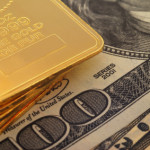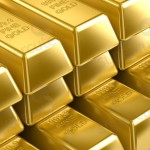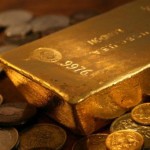The World Gold Council (WGC) publishes annual reports looking at how much gold each country and its central bank hold. At the present time, the United States, Germany, Italy, France, China and Switzerland as well as the International Monetary Fund (IMF) maintain the largest amount of gold reserves.
Although central banks were keen on getting rid of their gold during the booming periods of the 1980s, 1990s and 2000s, nations are starting to increase, yet again, their gold reserves. It was reported that central banks increased their gold holdings at the highest level since the 1960s, a sign that precious metals still hold value in a fiat monetary system.
It’s important to ask, though: if a system relies solely on fiat money and debt then why do central banks even bother with gold and, to some extent, silver? Well, gold reserves act as the savings of a nation and earn an income – think India and Russia when these central banks bought at low prices (they still do). In addition, gold “must be sufficiently liquid to supply three months or more international trade obligations for a nation facing difficulties in its international trade.”
After researching the lists of gold holdings by nations, it was a surprise not seeing Norway on the list. Norway is one of the richest nations in Scandinavia and in Europe. It is so rich that nearly “every single Norwegian is filthy rich” and it has been dubbed as the “land of oil millionaires.” It has indeed become a very expensive place to live with a high standard of living.
If the nation is so rich then how comes the Norges Bank, the nation’s central bank, doesn’t own any gold? Of course, it isn’t just some conspiracy hidden in a web of information and obscure allusions; it is openly stated on its website that it does not own gold, though it does have seven bars for exhibition purposes.
“Norges Bank has sold the gold bars in the central bank’s gold reserves, with the exception of seven gold bars reserved for exhibition purposes and 3 ½ tons of gold coins that were part of the ‘gold transport’ to England in 1940. Gold is no longer included in Norges Bank’s international reserves.”
The Norwegian central bank sold 33.5 tons of gold bars in the first quarter of 2004 and it received nearly $450 million in the sale, a considerable lower total than if it were sold anytime in the past few years.
“The background to the sale is that gold only accounted for just over one per cent of the Bank’s international reserves, and thus contributed little towards diversifying the risk associated with the reserves. The return on gold has historically been low,” the bank said in a press release at the time. “Revenues from the sale have amounted to about NOK 1½ billion, which has been invested as part of Norges Bank’s foreign exchange reserves.
“At end-2003, Norges Bank’s gold reserves consisted of about 37 tonnes of gold, made up of 3½ tonnes of coins and 33½ tonnes of gold bars.”
If someone is interested in buying gold then they must do so from a coin dealer.
Surprisingly there was no upheaval in Norway and websites dealing with financial services, like Toppfinans, and banks, such as Cresco, Storebrand Bank or Voss Veksel, haven’t necessarily made any complaints against the central bank getting rid of its last set of gold.
This possibly couldn’t happen in Switzerland. In fact, there was a petition and a protest to urge the federal government to release the precise number of gold in its reserves and to keep a minimum of 20 percent of its assets in gold.





Apparently, gold was little, or not needed at all to secure the sovereign currency, for those countries & periods when Government run currencies were in place. Perhaps, Norway should move to a Government Owned & Banked debt-free currency away from the middlemen private corporate bankers control?
Gold has always, and will always be worth something, can’t say the same for paper or bitcoin.